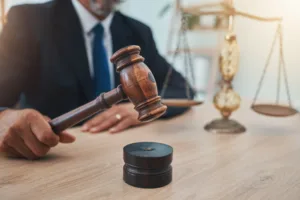
At first glance, the odds didn’t look promising.
Our client—a cybersecurity professional—had a complicated history. A past marked by youthful missteps, substance use, and a few poor decisions behind the wheel. There were also questions about past conduct in both his personal life and his early career. For most people facing that kind of record, a denial of security clearance would seem inevitable.
But that’s not how the story ended.
With representation from the Law Offices of Alan Edmunds, the client presented a compelling case. He took responsibility for his past, demonstrated growth, and showed he could be trusted with national security information. The judge agreed.
Clearance granted.
The case involved allegations under multiple guidelines, including drug involvement, criminal conduct, misuse of technology, alcohol use, and personal conduct. It was the kind of case that touches almost every category of concern in the adjudicative guidelines. But we don’t just look at the allegations. We look at the individual. And we build a defense that reflects the whole person—not just their past mistakes.
That’s what we do best.
There’s no cookie-cutter solution to these cases. Every client is different. Every file tells its own story. The key is knowing how to present that story in a way that aligns with the standards of national security eligibility. We do that through experience, judgment, and careful preparation.
If you’ve received a Statement of Reasons (SOR), are under investigation, or need to respond to issues raised during your clearance process, don’t go it alone. Mistakes in the early stages can have long-term consequences. We know how to navigate the system and protect your clearance—and your career.
At the Edmunds Law Firm, national security law isn’t a sideline. It’s what we do.
Contact us today to get started with a confidential consultation.
Looking for a security clearance lawyer? We handle:
- SF-86 issues
- Statement of Reasons (SOR) responses
- DOHA hearings
- Drug use and alcohol-related incidents
- Criminal conduct cases
- Misuse of information technology
- Personal conduct concerns
Contact us today to schedule a consultation and start building your defense. Your clearance—and your future—may depend on it.




